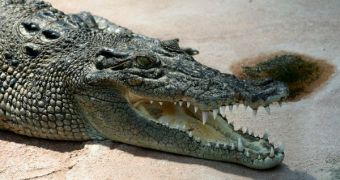In 1985, when the Turkey Point nuclear power plant opened in Florida, managed by the FPL company, around 19 saltwater crocodiles lived in the canals around the facility. Now, in 2008, more than 400 inhabit the intricate networks of small water courses that provide the plant with cooling water for its main reactors. The efforts that FPL (Florida Power&Light) made to ensure their safety paid off, and the company is now among the very few that can say “we don't just pollute, we also save.”
Surrounding the plant is a 6,800-acre network of canals that make it easier for Turkey Point to draw as much water as it needs for the cooling process. Spread in these waters are now 400 crocodiles, who were, until a few years back, an endangered species. Now their alert status has been lowered to threatened, and wildlife officials say that there is a very good chance that future generations will also have the possibility to see this rare animal alive, and not learn about it from the history books.
When FPL discovered the animals on its property, it immediately hired a marine biologist, Joe Wasilewski, to try and provide the creatures with optimum conditions for living and breeding. What makes this place so special is the fact that the area is the only breeding ground in the entire region, and is therefore crucial to the survival of the saltwater crocodile populations.
”This is a good story for a change. The species has rebounded enough that there’s a chance for future generations to see them,” says Wasilewski. He adds that FPL is also a member of the Florida Everglades Mitigation Bank, which is an environmental coalition, seeking to preserve some 13,000 acres of wetland throughout the state. FPL alone has some 22,000 acres of terrain in custody, which it currently uses to preserve the wildlife in them, among which 17 endangered species.

 14 DAY TRIAL //
14 DAY TRIAL //